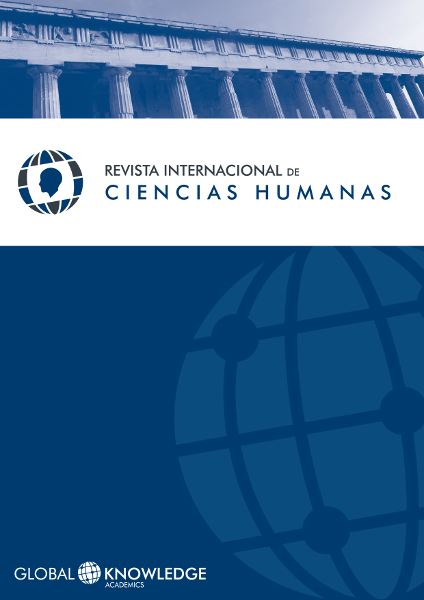Returnees, Displaced or Refugees? Decolonization of Portuguese Africa (1974- 1977)
DOI:
https://doi.org/10.37467/gka-revhuman.v2.706Keywords:
Displaced, Returnee, Decolonization, PortugalAbstract
The hypothesis of this article focus on the Portuguese former settlers from Angola and Mozambique (who were born or settled in the overseas territories) have not been felt as returnees in their nationality country because they having been forced to leave the two former colonies before independence due to the violent armed conflict in Angola and the social emergency state occurred in Mozambique. Many of those Portuguese who left Africa defined themselves as displaced persons who were involuntarily transported to a country with which they had little or no affinities. They did not feel as repatriated, but as unwanted foreigners, a kind of “outsiders”, despite they spoke the same language and knew the legislation. Portugal was a strange place to them, where their behavior and mentality were negatively pointed to remark that they were different from the others Portuguese.
References
Burman, Jeremy Trevelyan (2012). “History from within? Contextualizing the New Neurohistory and Seeking Its Methods”. History of Psychology , Vol. 15, nº.1, pp. 84–99.
Brettel, Caroline (2003). “Repatriates or Immigrants? A commentary”. Andrea Smith (ed.). Europe's Invisible Migrants . Amsterdam: Amsterdam University Press.
Cabecinhas, Rosa, Feijó João (2010). “Collective Memories of Portuguese Colonial Action in Africa”, IJCV, Vol. 4.
Conim, C. (1977). Estimativas da população 1941-1975 . Lisboa: INE
Cooper, Frederick (2003). “Postcolonial Peoples: A Commentary”, pp. 169-183. Andrea Smith (ed.), Europe's Invisible Migrants . Amsterdam: Amsterdam University Press.
Cooper, Frederick (2005). Colonialism in Question: Theory, Knowledge, History. Berkeley and Los Angeles: University of California Press.
Edensor, Tim (2002). National Identity: Popular Culture and Everyday Life, Oxford . NewYork: Berg.
Garcia, Rita (2012). Os que vieram de África . Alfragide: Oficina do Livro
Garcia, Rita (2011). SOS Angola: Os Dias da Ponte Aérea . Alfragide: Oficina do Livro
Gleason, Philip (1983). “Identifying Identity: A Semantic History”. Journal of American History 69/4, March, pp. 910-931.
Goffman, Erving (1990). Stigma, notes on the Management as Spoiled Identity. London: Penguin Books.
Hobsbawm, Eric (1988). Uncommon People . New York: New Press
Lubkemann, Stephen (2003). “Race, Class, and kin in the Negotiation of ‘Internal Strangerhood’ among Portuguese Retornados 1975-2000”. Andrea Smith (ed.). Europe's Invisible Migrants. Amsterdam: Amsterdam University Press.
Lucassen, Jan; Lucassen, Leo (1999). “Migration, Migration History, History. Old Paradigms, New Perspectives”. Vol. 4. International and Comparative Social History . New York, Bern: Peter Lang.
Miège, Jean Louis; Dubois, Colette (1994). L’Europe Retrouvée: Les Migrations de la Décolonisation. Paris: L’Harmattan
Ovalle-Bahamón, Ricardo (2003). “The Wrinkles of Decolonization and Nationness: White Angolan’s as Retornados in Portugal”. Andrea Smith (ed.), Europe's Invisible Migrants. Amsterdam: Amsterdam University Press.
Pires, Rui Pena et al (ed.) (1984). Os Retornados: Um Estudo Sociológico. Lisboa: IED, nº 14.
Rocha-Trindade, Maria Beatriz (1995). Sociologia das Migrações . Lisboa: Universidade Aberta.
Sobral, José Manuel Sobral (2007). “Pierre Bourdieu e o Estudo da Identidade Nacional”. José Madureira Pinto e Virgílio Borges Pereira (eds.). Pierre Bourdieu, a Teoria da Prática e a Construção da Sociologia em Portugal . Porto: Afrontamento.
Smith, Andrea (ed.) (2003). Europe's Invisible Migrants . Amsterdam: Amsterdam University Press.
Szompka, Piort (1996). The Sociology of Social Change . Oxford, Cambridge: Blackwell.
Zerubavel, Eviatar (2006). The Elephant in the Room: Silence and Denial in Everyday Life. Oxford: Oxford University Press.
Downloads
Published
How to Cite
Issue
Section
License
Those authors who publish in this journal accept the following terms:
- Authors will keep the moral right of the work and they will transfer the commercial rights.
- After 1 year from publication, the work shall thereafter be open access online on our website, but will retain copyright.
- In the event that the authors wish to assign an Creative Commons (CC) license, they may request it by writing to publishing@eagora.org









